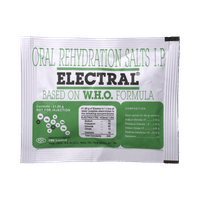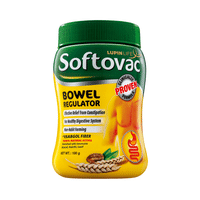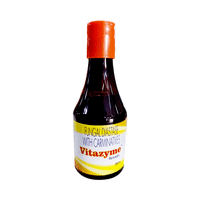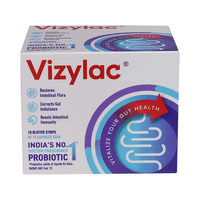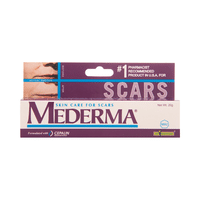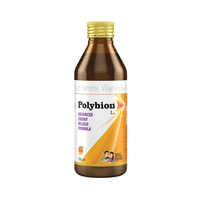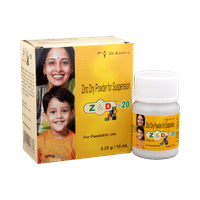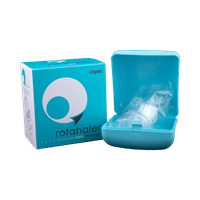food interaction for Ocin Syrup
alcohol interaction for Ocin Syrup
pregnancy interaction for Ocin Syrup
lactation interaction for Ocin Syrup
food
alcohol
pregnancy
lactation
Ocin 50mg/5ml Syrup may be taken with or without food, but it is better to take it at a fixed time.
None
None
CAUTION
It is unsafe to consume alcohol with Ocin 50mg/5ml Syrup.
UNSAFE
Ocin 50mg/5ml Syrup may be unsafe to use during pregnancy. Although there are limited studies in humans, animal studies have shown harmful effects on the developing baby. Your doctor will weigh the benefits and any potential risks before prescribing it to you. Please consult your doctor.
CONSULT YOUR DOCTOR
Ocin 50mg/5ml Syrup is probably unsafe to use during breastfeeding. Limited human data suggests that the drug may pass into the breastmilk and harm the baby.
CONSULT YOUR DOCTOR
SALT INFORMATION FOR Ocin 50mg/5ml Syrup
Ofloxacin(50mg/5ml)
Ocin syrup uses
{med_name} is used in the treatment of bacterial infections. It is also used in infections of urinary tract, gastrointestinal tract, female genital organ, skin & soft tissues and lungs (pneumonia).
How ocin syrup works
Ocin 50mg/5ml Syrup is an antibiotic. It interferes with the genetic material of bacteria by implanting defects in its DNA. These defects hamper the multiplication of the bacteria and affect its survival as well. Thus, it kills the infection-causing bacteria from growing further and prevents the infection from spreading without making them resistant to further treatment.
Common side effects of ocin syrup
Vomiting, Insomnia (difficulty in sleeping), Fungal infection, Agitation, Sleep disorder, Vertigo, Cough, Rash, Anaphylactic reaction, Anxiety, Confusion, Cognitive impairment, Depression, Abnormal dreams, Eye irritation, Joint pain, Muscle pain, Ringing in ear, Photophobia, Fast heart rate, Hypotension (low blood pressure), Increased creatinine level in blood, Photosensitivity, Nausea, Headache, Dizziness, Abdominal pain, Itching, Inflammation of tendons, Tendon rupture, Psychotic disorder, Liver dysfunction, Pseudomembranous colitis, Nightmares, Sleepiness, Paresthesia (tingling or pricking sensation), Breathlessness, Bronchospasm, Increased liver enzymes, Genital itching, Vaginal inflammation, Indigestion
SUBSTITUTES FOR Ocin Syrup
42 Substitutes
42 Substitutes
Sorted By
 Rs. 30.94pay 209% more per ml of Syrup
Rs. 30.94pay 209% more per ml of Syrup Rs. 30.94pay 209% more per ml of Syrup
Rs. 30.94pay 209% more per ml of Syrup Rs. 41.72pay 108% more per ml of Syrup
Rs. 41.72pay 108% more per ml of Syrup Rs. 37.50pay 87% more per ml of Syrup
Rs. 37.50pay 87% more per ml of Syrup Rs. 45pay 127% more per ml of Syrup
Rs. 45pay 127% more per ml of Syrup
Expert advice FOR Ocin Syrup
- Your child must complete the entire course of antibiotics. Stopping too soon may cause the bacteria to multiply again, become resistant, or cause another infection.
- Do not give any calcium, magnesium, iron, vitamin, or antacid within 2 hours of taking Ofloxacin as these can affect the absorption of the medicine.
- Encourage your child to drink plenty of water in case diarrhea develops as a side effect.
- Conditions like common cold and flu are caused by viruses. Never use this medicine for such conditions.
- Discontinue Ofloxacin and inform the doctor immediately if your child develops a rash, itchy skin, swelling of face and mouth, or has difficulty in breathing.
- Only give Ofloxacin to your child for their current infection. Never save medicine for future illnesses.
- Your doctor has prescribed Ofloxacin to cure your infection and improve symptoms.
- Do not skip any doses and finish the full course of treatment even if you feel better.
- Discontinue Ofloxacin and inform your doctor immediately if you get a rash, itchy skin, swelling of face and mouth, or have difficulty in breathing.
- Diarrhea may occur as a side effect but should stop when your course is complete. Inform your doctor if it doesn't stop or if you find blood in your stools.
- Notify your doctor if you feel pain in your tendons, numbness, or tingling sensations.
- Inform your doctor if you are pregnant or planning to conceive or breastfeeding.
Frequently asked questions FOR Ocin 50mg/5ml Syrup
Ofloxacin
Q. What if I give too much of Ocin 50mg/5ml Syrup by mistake?
An extra dose of Ocin 50mg/5ml Syrup is unlikely to harm. However, if you think you have given too much to your child, immediately speak to a doctor. Overdose may cause unwanted side effects such as seizures, tremors, severe headache, sudden weakness, unconsciousness, and palpitations (irregularities of heartbeat). Rush to your child’s doctor on an immediate basis if you notice any of these symptoms.
Q. What should I do if my child shows no improvement even after taking Ocin 50mg/5ml Syrup for the prescribed duration?
Ineffective treatment with Ocin 50mg/5ml Syrup could mean that the medicine is not able to act against the infection-causing bacteria. In such a case, visit your child’s doctor who may prescribe some other antibiotic that would be more specific in action. Not all medicines are given by oral route, some may have to be given by IV route (intravenous injection) in the hospital.
Q. Can other medicines be given at the same time as Ocin 50mg/5ml Syrup?
Ocin 50mg/5ml Syrup can sometimes interact with other medicines or substances. Tell your doctor about any other medicines your child is taking before starting Ocin 50mg/5ml Syrup. Also, check with your child’s doctor before giving any medicine to your child.













